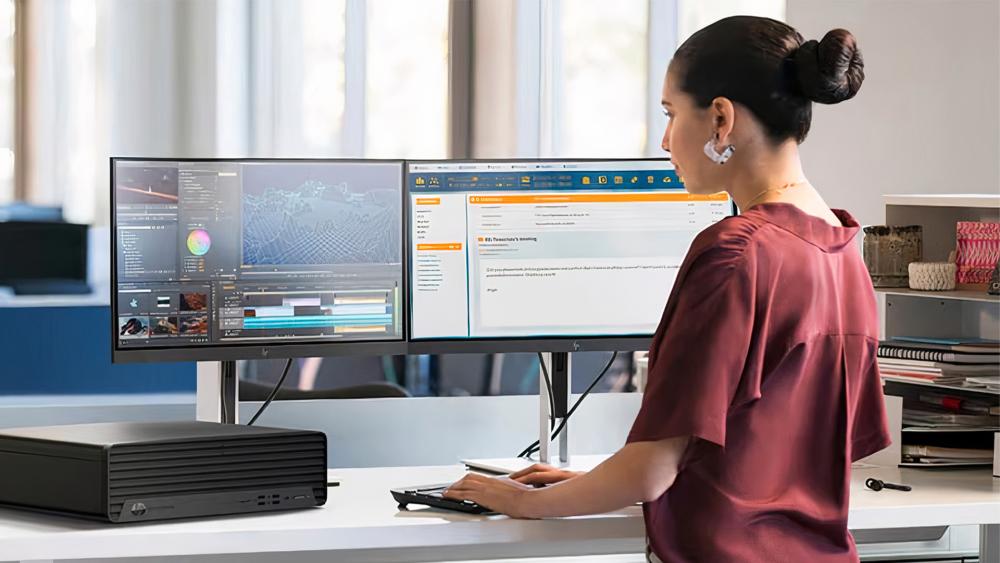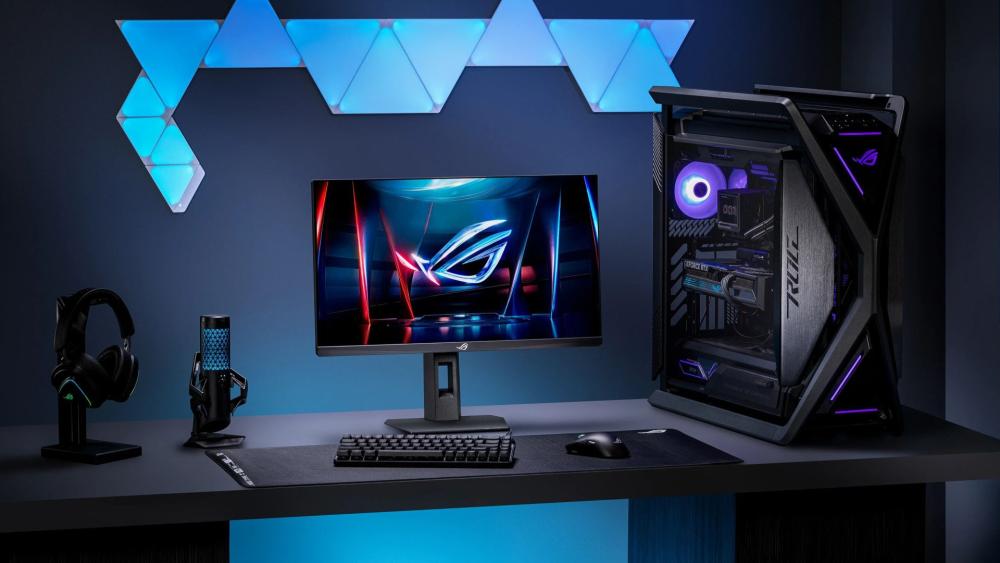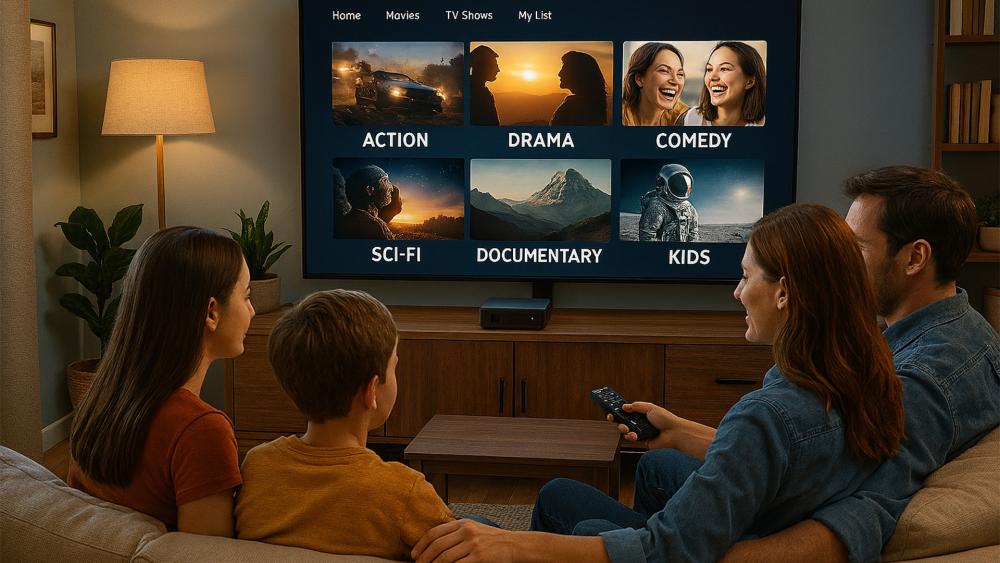POSTED: 16 September, 2025
Mini PC vs Tower PC: Which is Right for You?
Choosing between a Mini PC and a Tower PC isn’t always straightforward. On one side, you’ve got compact mini PCs that save desk space and slip neatly into a modern setup. On the other hand, traditional tower PCs still lead the way for raw performance, gaming power, and easy upgrades.
The question is simple: do you want something small and efficient, or a machine that can be pushed to the limit? In this guide, we’ll compare both options, look at the pros and cons, and help you figure out whether a small form factor PC or a gaming computer desktop is the better match for your needs.

What is a Mini PC?
A mini PC is a compact desktop computer designed to deliver solid performance in a much smaller footprint than a traditional tower. They’re often referred to as small form factor PCs or compact desktops, making them ideal for tight spaces like student desks, living rooms, or workstations where a bulky case would get in the way.
Most modern mini PCs run on Windows 11, offering the same user experience you’d get from a standard desktop or laptop. Despite their small size, they’re capable of handling everyday tasks such as web browsing, office work, media streaming, and even light creative workloads. Some of the best mini PCs can even be configured with decent graphics performance, though they’re not built to compete with high-end gaming towers.
If you want something portable, energy-efficient, and tidy, a mini PC could be a smart alternative to a small desktop computer or laptop. You can explore a wide range of options in our collection of small form factor PCs.
What is a Tower PC?
A tower PC is the traditional desktop design most people are familiar with. Also known as a computer tower, it houses all the essential components, such as the motherboard, graphics card, power supply, and cooling systems, inside a larger case. This makes them bulkier than mini PCs, but it also allows for far greater power and flexibility.
Tower PCs come in different sizes, including full tower, mid-tower, and mini tower PC options. A mini tower is smaller and easier to fit on or under a desk, while full and mid-towers are better suited for users who want plenty of room for powerful hardware and future upgrades.
They remain the go-to choice for gamers, streamers, and professionals who need high-performance machines. Whether you’re building or planning to buy a tower PC, you’ll find options ranging from cheap computer towers for everyday use to high-end rigs built for 4K gaming.
You can check out our full selection of tower PCs to explore different configurations.
Mini PC vs Tower PC: Key Differences
When deciding between a Mini PC vs Tower PC, the biggest differences come down to size, power, upgradability, and price.
- Size & Design: A mini PC is compact, often small enough to fit in the palm of your hand, making it perfect for minimalist setups. A tower PC is larger and bulkier but allows more space for powerful components and airflow.
- Performance: While the best mini PCs can handle daily computing and even some light gaming, a gaming PC tower offers unmatched performance for demanding tasks like 4K gaming, 3D rendering, or streaming.
- Upgradability: Towers are designed for easy upgrades. You can swap out graphics cards, add more storage, or improve cooling. Mini PCs, on the other hand, have limited room for hardware changes.
- Cooling: Tower PCs benefit from larger fans and better airflow, making them more reliable for high-performance gaming. Mini PCs can run warmer under heavy loads due to their smaller enclosures.
- Price: A small desktop computer or mini PC is usually cheaper upfront, but a gaming computer desktop offers better long-term value thanks to its performance and upgradability.
If you’re after a compact machine for office work or media use, a mini PC is a smart choice. But if you want power, customisation, and gaming performance, a tower PC is the clear winner.
Mini PCs: Advantages and Limitations
Advantages of Mini PCs:
- Compact Size: Perfect for tight spaces, dorm rooms, or minimalist desks.
- Portability: Easy to move between home and office or use as a media centre.
- Energy Efficiency: It consumes less power compared to tower PCs.
- Quiet Operation: Many models run with near-silent cooling.
- Modern Software Support: Most latest mini PCs run Windows 11, giving you the same features as larger desktops.
Limitations of Mini PCs:
- Limited Upgrades: Most components, like CPU and GPU, are fixed, with only RAM and storage sometimes replaceable.
- Performance Ceiling: Even the best mini PCs can’t match a gaming PC tower for AAA gaming or intensive creative work.
- Cooling Challenges: Smaller enclosures mean less airflow, so heavy use can push them to higher temps.
Overall, a mini PC is an excellent option for students, professionals, or families wanting a small desktop computer that balances performance and convenience.
Tower PCs: Advantages and Limitations
Advantages of Tower PCs:
- Maximum Performance: A gaming PC tower is built to handle everything from competitive esports to 4K gaming, VR, and professional workloads.
- Upgradability: You can swap out graphics cards, add more storage, install extra RAM, or even customise cooling.
- Better Cooling: Larger cases allow for stronger airflow and advanced cooling solutions, which help components last longer.
- Longevity: Even if the upfront cost is higher, tower PCs can be upgraded over time, offering better long-term value.
Limitations of Tower PCs:
- Bulky Size: A computer tower takes up more desk or floor space, which isn’t ideal if you want a minimalist setup.
- Power Consumption: They draw more energy, especially when running powerful GPUs.
- Less Portable: Unlike a mini tower PC, full and mid-towers aren’t designed to move around easily.
From budget-friendly, cheap computer towers to premium builds, tower PCs remain the go-to for gamers, streamers, and anyone needing top-tier performance.
Which is Better for Gaming?

When it comes to gaming, the battle of Mini PC vs Tower PC has a clear winner in most cases.
A mini PC can handle casual or indie games, and the best mini PCs equipped with integrated or modest dedicated graphics can manage esports titles like League of Legends or Rocket League. They’re fine for light gaming setups but aren’t designed for the latest AAA releases at ultra settings.
On the other hand, a gaming PC tower is built for serious performance. With room for high-end GPUs, advanced cooling, and customisation, it delivers high frame rates, 4K visuals, and VR support with ease. For anyone into competitive play or demanding titles, a gaming computer desktop remains the top choice.
If gaming is your priority, a tower will give you the most value and future-proofing. Check out the latest gaming PCs to see what setups are available.
Which Should You Buy?
The choice for Mini PC vs Tower PC comes down to what you need from your setup.
Choose a Mini PC if:
- You want a compact, clutter-free workspace.
- You need a small desktop computer for everyday tasks, streaming, or studying.
- Portability matters, easy to move between home, office, or living room.
- You’re after energy efficiency and low noise levels.
Choose a Tower PC if:
- You’re a gamer or creator needing maximum performance.
- You want a gaming PC tower capable of handling 4K gaming, VR, or editing.
- Long-term flexibility matters, with easy upgrades for graphics, RAM, and storage.
- You want better cooling and longevity.

At Box, you’ll find options to buy a tower PC or choose the best mini PC for your needs, whether you’re building a media centre, gaming rig, or work machine.
Conclusion:
Deciding between a Mini PC vs Tower PC depends on whether you value compact design or maximum performance. A mini PC is ideal if you need a tidy, space-saving machine for everyday computing, streaming, or office work. Meanwhile, a tower PC is still the go-to for gamers, creators, and anyone who wants upgrade options and raw power.
Both have their place; it’s about matching your needs to the right system. If you’re after portability and simplicity, explore our range of mini PCs. For performance-driven setups, check out tower PCs and gaming desktops.
FAQs - Mini PC vs Tower PC
1. Are mini PCs as powerful as tower PCs?
Not quite. While the best mini PCs can handle everyday tasks and light gaming, a tower PC still has the edge for high-end gaming, creative work, and future upgrades.
2. Can a mini PC run Windows 11 smoothly?
Yes. Most modern mini PCs come preloaded with Windows 11, offering the same software experience as a traditional desktop or laptop.
3. What’s the difference between a mini tower PC and a full tower PC?
A mini tower PC is smaller, easier to fit on or under a desk, and usually designed for mid-range hardware. A full tower has more space for larger GPUs, multiple drives, and advanced cooling.
4. Is a mini PC good for gaming?
A mini PC can manage light or casual gaming, but for AAA titles, higher frame rates, and 4K visuals, a gaming PC tower or gaming computer desktop is the better option.
5.Why are tower PCs better for upgrades?
Tower PCs are built with space and modularity in mind. You can replace graphics cards, add more storage, upgrade RAM, or even improve cooling systems, something most mini PCs can’t accommodate.